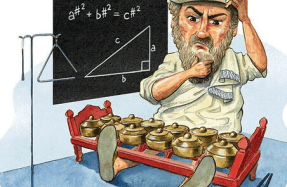Haunting melodies

From its very beginnings in the Italian Renaissance, opera was an attempt to recreate a form of Classical theatre that might help us, through storytelling and music, to understand the nature of our existence in a terrifying and limitless universe. Mythical gods, sorcerers, ghosts, monsters, things that go bump in the night: the world of the supernatural is woven into the fabric of opera, heightened by music that colours and guides our emotional and psychic response.

The operatic voice itself is, in a sense, ‘supernatural’ – an extreme form of expression that projects the inner lives of characters onto a vast canvas, providing a perfect vehicle for inspiring awe and terror. In many Romance languages, the word for singing is derived from the Latin ‘cantare’, whose origins lie in casting of spells, or incantations. Some of the earliest examples of the supernatural in opera revolve around the subversive qualities of witchcraft and sorcery.
In Purcell’s s, the witches who lure Aeneas away from Carthagewarns of the malignant effects of the supernatural on Enlightenment ideals: luring men to her island, the eponymous sorceress turns them into beasts. Witches and sorcerers continued to fascinate composers into the 19th century. In Rossini’s , the protagonist is an infidel temptress who uses magic to try to steer the knight Rinaldo away from his Christian mission in the Crusades.
You’re reading a preview, subscribe to read more.
Start your free 30 days



